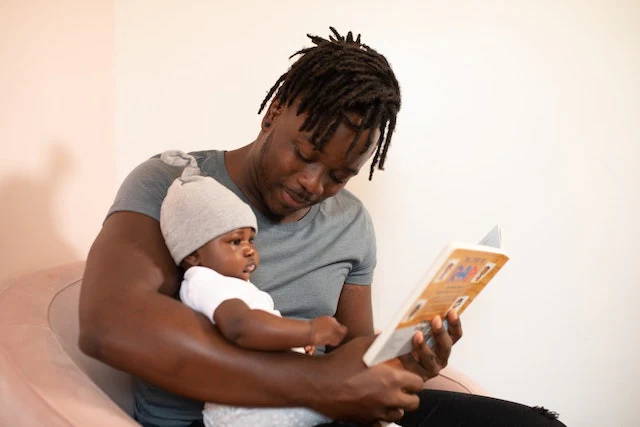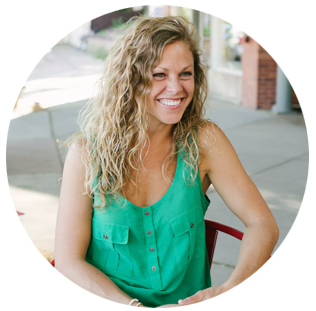
New Thinking on Infant Development
| Pregnancy |
One of the best parts of working in a field such as fertility, pregnancy, and infant development is that there is constant improvement in my area of expertise. Every day, scientists, practitioners, and other experts in the field are discovering new findings and new research that will help to keep mama, baby, and the whole family healthier for the long run.
But what’s even better is when this research can help us to raise our babies in a way that will help them to become the smartest, happiest, healthiest version of themselves.
As I regularly mention, I wholeheartedly believe that what works best for one family or one baby may not work for another. As long as baby is being raised with love, nourishment and attention, I deeply believe that you are on the right track as a parent.
But I also believe there is definite benefit to looking at the latest research in infant development and trying out some points of view to see what works best for you.
OLD VS. NEW THINKING ON INFANT DEVELOPMENT
Old way of thought:
Babies are only able to recognize the voices of family members or people that are consistently in contact with the child.
New research shows:
At three months old, your baby is able to start recognizing and matching the voices and faces of several different individuals.
Research completed at Exeter University in England found that three-month-old babies are able to pair faces and voices after only 90 seconds of exposure. In fact, the babies included in the study were even able to identify which voices did not match the pictures of faces that they were shown, as well.
This means that when you have visitors, parents should suggest that they speak both in their regular voice to your newborn child, as well as being comfortable using their “baby voice,” so that baby will recognize that specific person’s presence more immediately in the future.
MIMICKING SPEECH AND EMOTIONAL PATTERNS
Old way of thought:
It’s important to read to your baby so that they start to recognize words.
New research shows:
It’s important to read to your baby… and to show emotional responses.
A new study has found that your baby can start to track your emotional cues when they are just an infant. This means that baby is not only learning words and language from you when you read to them, but they are also learning how to relate with genuine emotion.
In fact, this study, looking at infants five weeks old to three months, found that a child who has a typically emotionally responsive parent (ex. smiles when baby is happy, or frowns when baby is sad) notices when their parent does not respond to their emotions. The researchers noted that the babies actually became more reserved when they didn’t receive an emotional response from their parents.
This means that parents should aim to reenact their baby’s emotions. Smile when your child is happy. Or show your baby that when they are sad, it makes you frown, too. This, in turn, will help your infant to understand that you are sympathetic to their emotions and helps your baby to feel more safe and secure in their environment.
Parents should also show genuine emotion when they are reading to their infant. This will help your baby to understand that they should be comfortable sharing their emotions, both to you and to the world in general.
OBJECT PERMANENCE
Old way of thinking:
A baby doesn’t understand that an object can exist even when it is out of sight until they are eight months old.
New research shows:
Babies actually recognize that an object can exist out of their line of vision as early as three months old… though they have a short memory retention.
The University of Otago in New Zealand conducted a study in which researchers hid a little one’s favorite toys and discovered that babies starting as young as three months knew exactly where to look to find their toy.
The trick to this though, is that the child typically forgot that their toy still existed after around eight seconds.
This research means that babies have more familiarity with their surroundings than we have ever recognized before. And, as parents, you should respect your child’s intelligence. Let them know why you’re taking away their toy, and let them see what you’re doing with it and where it’s going. Help your infant to recognize that their toy, and you, will be available when they get back home.
COMPLEX THINKING
Old way of thinking:
Infants do not start having complex thoughts until they are in their preschool years.
New research shows:
Complex thought can actually start around three months old.
A recent study at Birkbeck University in London found that infants as young as three months old were able to identify patterns, and that infants started to recognize differences in counting sequences around six months old.
The study included infants looking at a pattern of cats, with one dog in the mix. Infants as young as three months looked longer at the dog in the pattern than they did at the cats.
This means that the infants were dog people. (Joking – making sure you’re paying attention.)
This means that the infants at this very young age already noticed the difference within the pattern.
Though it was not until they were six months old that the infants recognized number sequences. In this study, the babies would look at a certain number of objects (ex four blocks or two shapes) that were matched with the same number of musical tones. It was found that babies as young as six months noticed a difference in the number of tones matched to the number of objects whenever they were done incorrectly.
As a parent, this means that pattern games are perfect learning opportunities, even at a very young age. Feel free to start shape puzzles and teaching counting at a young age, because you are making a difference.
MASTERING SKILLS
Old way of thinking:
Mastering a skill takes repetition.
New research shows:
Mastering a skill takes repetition… and a whole lot of time.
Recent research shows that, no matter the amount of repetition that occurs, infants do not start mastering skills until around 15 months old. So be flexible and patient with your little one as they consistently try to learn the ways of the world. Things that are seemingly simple, such as using utensils or feeding yourself, will likely take a significant amount of time to master.
Written by Sarah Jane Sandy
Sarah Jane Sandy is a functional nutritionist and women’s health expert. As a hormone imbalance survivor herself, Sarah is passionate about helping women fix their hormonal chaos, get pregnant, grow a healthy baby, and feel happy and content in their bodies. For over a decade she has been researching and studying how the food we eat and the way we live affects our fertility, pregnancy, hormones and post-birth. Sarah works with women all over the world remotely through her 1:1 consultations and online programs. You can read more about Sarah on her website, and find more information about she works with women to optimize health in all phases of life.



